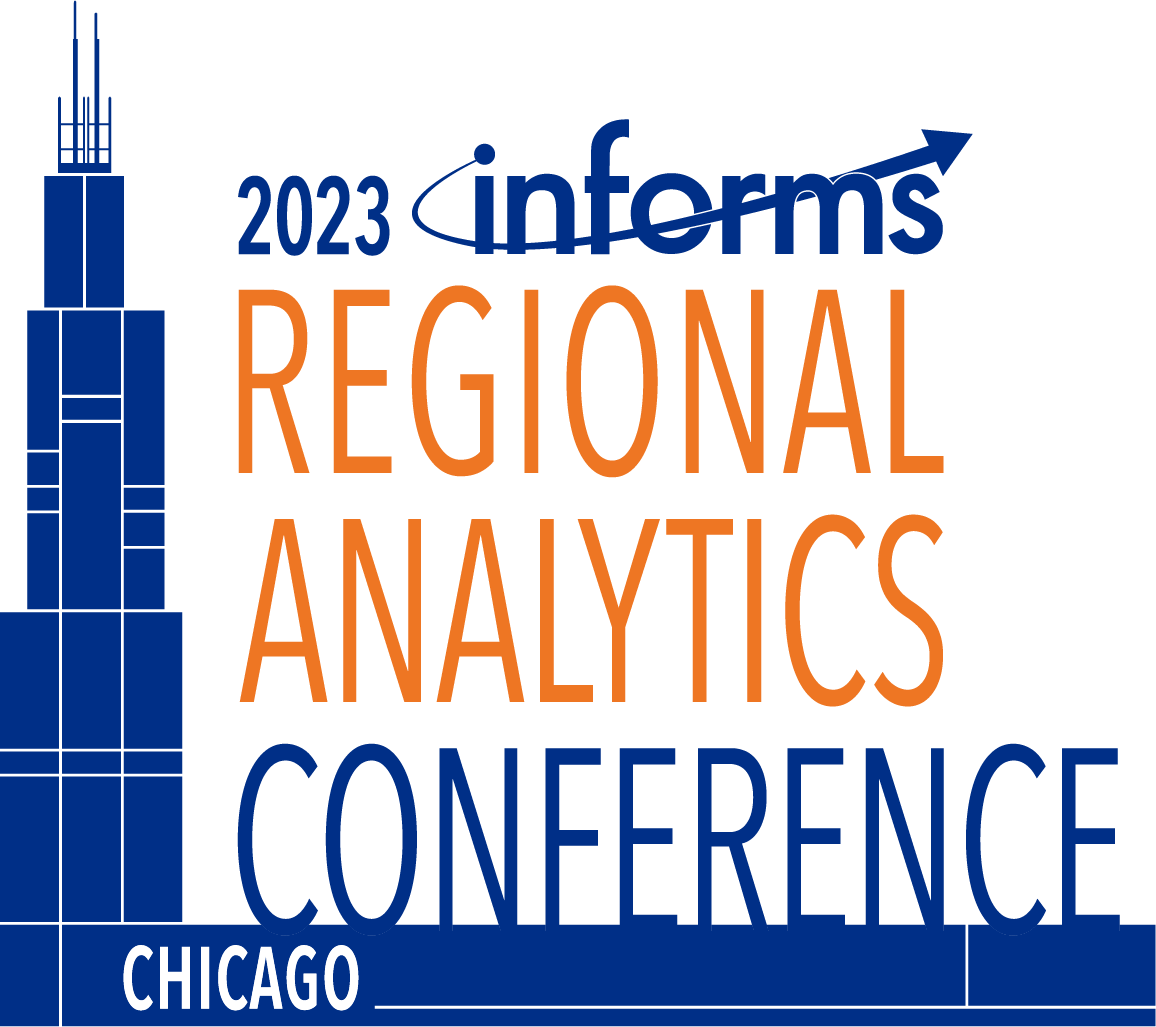
Satya Pandey
Enterprise AI Journey – From Vision to Value
Embark on a journey that explores the core of enterprise AI initiatives, tailored to different stages of maturity. The session will offer insights into formulating a strong AI vision, standing up the right team, measuring progress, and creating value-driven strategies that align with your organization’s unique trajectory.
Key takeaways:
- How should enterprises think about starting and/or scaling the AI journey?
- How do you create strategies around talent, business value, and execution approaches?
- How do you think of the full spectrum of AI from classical ML applications to next-gen generative AI applications?

Kanchana Padmanabhan
Array Insights
Navigating the Ethical Landscape of Large Language Models in Healthcare: Balancing Potential Benefits and Challenges
In this era of digital transformation, Large Language Models (LLMs) are emerging as powerful tools in healthcare. They have the potential to revolutionize patient care and research by processing vast amounts of data to generate insights, predict outcomes, and aid in decision-making. However, along with these promising benefits comes a host of ethical questions surrounding privacy, security, and explainability – the ability to understand and interpret the results produced by these models, which is critical in the sensitive context of healthcare.
In this talk, we will delve into the exciting potential of LLMs in healthcare, exploring how these AI models can enhance patient care, drive research, and foster innovation. From summarizing patient stories and clinical notes, extracting structured insights such as metastasis and cause of death, understanding patient sentiments, and predicting health trends, to identifying patterns in disease progression and treatment responses, LLMs can play a pivotal role in shaping the future of healthcare. Simultaneously, we will confront the ethical dilemmas that these technologies pose to patient privacy. We will end the talk with discussion on how to work through these challenges.
Key takeaways:
- Capabilities of LLMs
- Ethical challenges posed by LLMs
- Avenues that need work both from technical and policy perspective

Kristian Hammond
Managing Transformation: Business and Technology in the Age of Language Models
Artificial intelligence (AI) is reshaping numerous industries, and one of the most impactful developments in this landscape has been the rise of generative AI systems such as ChatGPT. Powered by a unique blend of machine learning and natural language processing capabilities, ChatGPT has emerged as a transformative technology that has redefined the realm of human-computer interaction. This 90-minute session aims to offer functional review of its core functions, potential applications, and its role in empowering users in their personal and professional lives.
We will navigate how language models can be developed and deployed, demonstrating their potential across sectors such as customer service, education, healthcare, and content creation. Participants will gain insights into how this technology can be tailored to meet individual requirements, thereby enhancing efficiency, productivity, and decision-making capabilities.
We will also discuss the concerns to keep in mind when integrating Language Models into workflows and products. We will address ethical considerations, data privacy, and model training limitations to ensure you make informed decisions that align with your specific needs and values.
Designed for business leaders and technical decision-makers, this talk offers a functional understanding of the business uses of LLMs, how to bring them into the enterprise, and how to avoid possible pitfalls. Our goal is to ensure you walk away with a solid grasp of this game-changing technology and a clear vision of how you can leverage it to stay at the forefront of the digital revolution.
Key takeaways:
-
Understanding the reality of Language Models
-
Use case and approaches to using them
-
Mistakes to avoid

Nicholas Soulakis
Pathways to Inclusive Public Health Informatics
This talk will lay a conceptual framework and present simulation results for more inclusive community-based studies and interventions. We will demonstrate how systems that initially conserve anonymity may be architected to provide pathways of trust-building activities and can ultimately lead to full participation. Special cases of peer referral will demonstrate how we might discover clusters of engagement among communities which may otherwise wish to remain in the margins.

Jie Shen
-
Jie Shen, PhD, is an innovative leader with a track record of building innovative solutions to address various drug discovery and medicine development problems. He is a Director of Digital Science at AbbVie, leading the digital health technology development, validation, and digital data analytics. Prior to his current role, Jie has led data science and advanced analytics capability development and execution for precision medicine, clinical trial optimization, digital health, and drug discovery at AbbVie and Eli Lilly and Company. Jie has published 50+ papers with more than 6,000 citations.

Gulé Sheikh
Ethical AI Considerations
Ethical AI is paramount for the future of artificial intelligence due to the impact on societal implications. As AI becomes more integrated into our lives, addressing the ethical concerns around data validation, transparency and responsible innovation. Biased algorithms, privacy violations and potential for job displacements necessitate the establishment of ethical frameworks and guidelines. As we build our roadmaps for the evolution of AI, we must also consider how we contribute to enhancing societies growth while mitigating unintended consequences.
-
Gulé is a technologist and entrepreneur with successful exits. She’s worked in finance and healthcare for 25 years, and has focused on data-driven successful outcomes. Gulé started her career at EDS and Hewlett-Packard before starting her own company, attained VC funding and successfully exiting in 2019. She built the first proprietary algorithm in out-of-pocket medication cost at the point of care, and she was voted the top telemedicine solution provider for three years straight, and interviewed by Melinda Gates. She has dedicated the last decade to delivering solutions that improve patient outcomes through technology.

Derrick Higgins
Health Care Service Corporation (HCSC)
AI in Healthcare
-
Derrick Higgins is Vice President, Data Science & AI Solutions at Health Care Service Corporation (HCSC) where he leads development of intelligent capabilities for payer operations ranging from risk stratification and healthcare management to payment integrity and utilization management. His division serves as a center of excellence, facilitating collaboration, providing governance, and assembling data science best practices for the enterprise. Higgins is also an adjunct professor of computer science at the Illinois Institute of Technology.
Previously, Higgins led the innovation unit at the American Family Insurance (AmFam) Data Science and Analytics Lab in Chicago, where his team developed new products and services based on text, imagery and IoT data in the property and casualty (P&C) domain. Prior to joining AmFam, Higgins was lead data scientist at Civis Analytics, and used deep learning to uncover latent factors in political discussions on social media. Before that, he was the Director of NLP and Speech Research at Educational Testing Service, where he and his team developed tools for analyzing student responses that are now used in leading testing programs around the world, including the GRE and TOEFL exams.
Higgins earned a PhD in linguistics from the University of Chicago in 2002.

Joe DeCosmo
-
Joe joined Enova in 2014. As Chief Analytics and Technology Officer, Joe leads a multidisciplinary analytics team that provides end-to-end data and analytic services including data warehousing, business intelligence, business analytics, fraud, credit risk, and marketing. His team supports the global online financial services offered by Enova International and delivers on-demand decision-making technology and real-time predictive analytics services to clients through the Enova Decisions® brand. He also oversees Enova’s technology team, leading tech operations, software engineering, IT, and product management. Prior to working at Enova, he served as director and practice leader of Advanced Analytics for Chicago-based West Monroe Partners. He has also held a number of executive positions at HAVI Global Solutions and the Allant Group. Joe received a BA in economics from Lewis University and an MA in economics from the University of Illinois Chicago. He is Immediate Past-President of the Chicago Chapter of the American Statistical Association and is on the Advisory Board of the UIC College of Business Administration. Joe lives in the Chicago area with his wife and daughters.

Sheida Gohari
-
Sheida Gohari is currently Senior Director of Artificial Intelligence and Head of the AI Lab at Walgreens Boots Alliance. She commands extensive expertise in Artificial Intelligence, Data Science, and Operations Research in healthcare and retail domains. Her prior leadership roles at Zebra Technologies and CCC Intelligent Solutions encompassed directing cross-functional teams in implementing advanced machine learning and deep learning models, process optimization, and complete automation of deep learning workflows. With her strong educational background as a foundation, including a Ph.D. in industrial and system engineering, she stands as a distinguished authority in the technology and AI domains.

